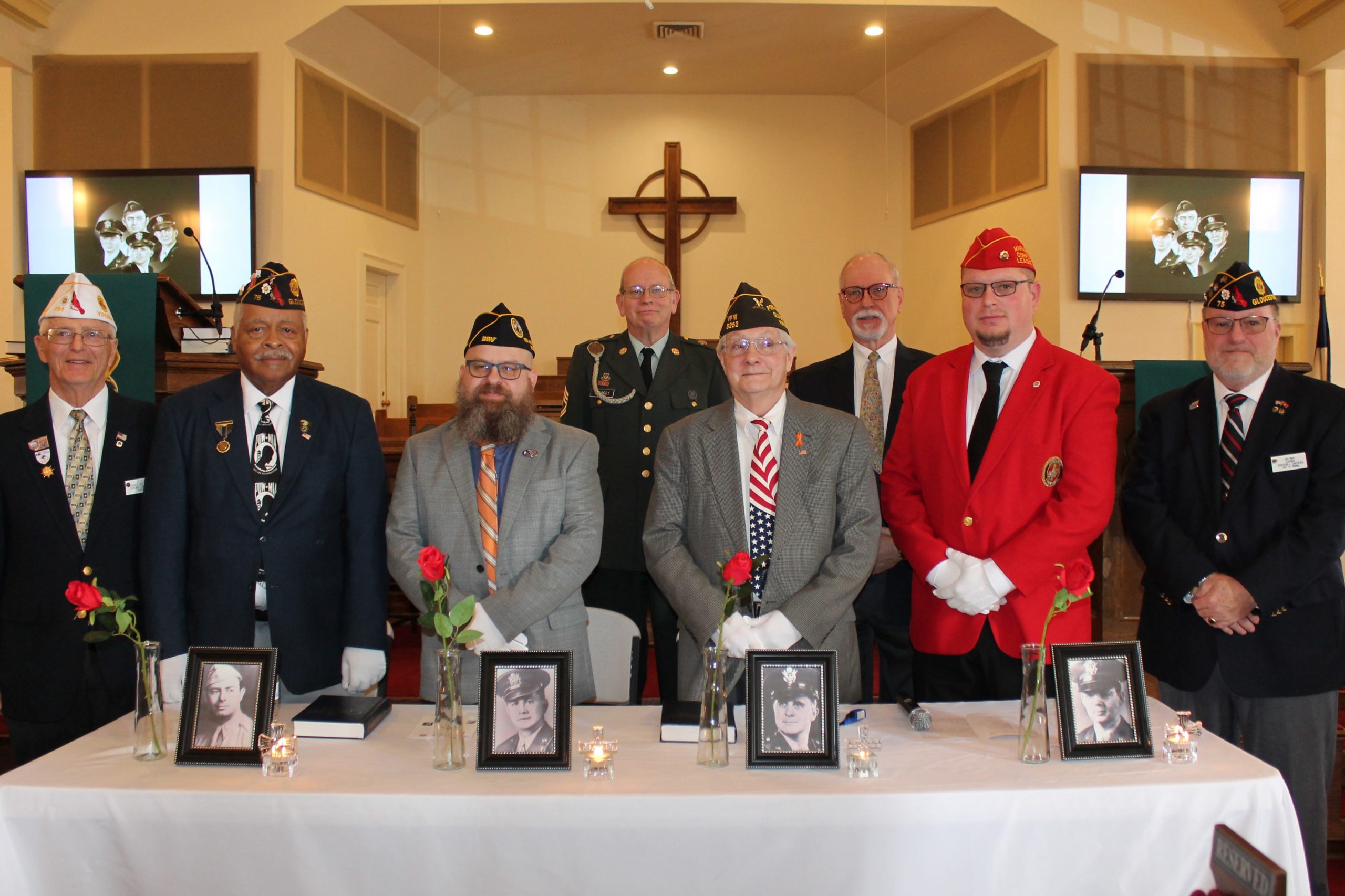A service commemorating the Four Chaplains of World War II fame was held on Saturday at Grace Covenant Presbyterian Church, Gloucester.
Guest speaker the Rev. Dr. Doug Nagel spoke of the “extraordinary faith, courage, and selflessness” it took for the chaplains to sacrifice their lives for the lives of others when their ship, the USAT Dorchester, was sunk by a German torpedo in icy waters off Greenland 80 years ago, on Feb. 2, 1943.
Nagel said that chaplains George L. Fox, Alexander D. Goode, Clark L. Poling, and John P. Washington “passed life’s ultimate test” when they handed out life jackets, and eventually gave away their own after the jackets ran out and remained on the ship, arm in arm, praying and singing hymns to comfort others as it sank. Only 230 of the 902 aboard survived.
“Their decision to lay down their lives for others speaks volumes about sacrificial love,” said Nagel.
When a person joins the military, said Nagel, they take an oath to defend the Constitutio...
To view the rest of this article, you must log in. If you do not have an account with us, please subscribe here.

